 There are 3 possible treatments for C-19, but wait…
There are 3 possible treatments for C-19, but wait…
April 18th 2013, an article found on the Wayback Machine:
 There are 3 possible treatments for C-19, but wait…
There are 3 possible treatments for C-19, but wait…April 18th 2013, an article found on the Wayback Machine:
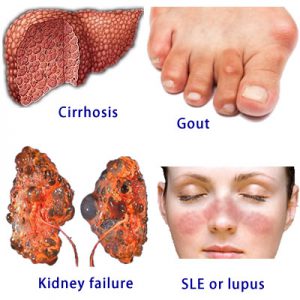 To finish off this 4 part article Drugs! are you on a diuretic, I will show you some questions written by worried patients prescribed diuretics. If you’re on this class of drugs, you may find a question here relating to you and problems you are encountering. As Furosemide is a diuretic that is one of the most prescribed drugs in the world, questions about this particular drug will be covered here. Click for Part 1, Part 2 and Part 3.
To finish off this 4 part article Drugs! are you on a diuretic, I will show you some questions written by worried patients prescribed diuretics. If you’re on this class of drugs, you may find a question here relating to you and problems you are encountering. As Furosemide is a diuretic that is one of the most prescribed drugs in the world, questions about this particular drug will be covered here. Click for Part 1, Part 2 and Part 3.
Over 7 million US citizens were prescribed this diuretic to lower hypertension (high blood pressure) up to 2012. I can’t find an up to date figure but you can imagine what a money spinner this drug is.
This was to reduce water retention by duping the kidneys to shed more fluid than they would normally do. Also, that lost fluid would contain precious minerals and nutrients that would have been salvaged through a secondary filtering system that naturally happens with normal kidney function. In other words, this drug changes the way kidneys normally function, to the detriment of the filtering process.
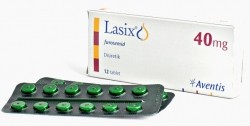 Furosemide (Lasix) – A loop diuretic
Furosemide (Lasix) – A loop diureticFurosemide (Lasix) is a “loop” diuretic, meaning that it affects a special part of the kidney called the loop of Henle to facilitate salt elimination from the body. This medication not only kicks sodium out of the body (considered a beneficial action), it also promotes removal of other key minerals such as magnesium, potassium and calcium. Many health professionals are aware of the potassium problem, but they may ignore the depletion of magnesium. Low levels of magnesium and potassium can have devastating consequences.
This drug is one of the most prescribed drugs in the world, are you on it? Here are some question asked by worried patients about furosemide which brings in billions of dollars to the pharmaceutical industry every year.
“My husband’s doctor is concerned about his blood pressure. It has been fine until three days ago when at the doctor’s office it was 140/80. (When we got home it was 125/75). The doctor doubled his dose of furosemide.
I frankly am afraid he is going to end up in the hospital! I would like to learn more  about this drug. My husband fortunately works close to home; he sometimes urinates on himself because he can’t always make it to the bathroom in time. He does operate heavy equipment at times and the dizziness thing is scary too. Please tell us more about furosemide (Lasix) side effects.”
about this drug. My husband fortunately works close to home; he sometimes urinates on himself because he can’t always make it to the bathroom in time. He does operate heavy equipment at times and the dizziness thing is scary too. Please tell us more about furosemide (Lasix) side effects.”
This is absolutely disgraceful. Doubling the dose of Lasix just because someone exhibits a slightly high BP reading is scandalous, especially as his BP dropped as soon as he got home. This is a typical example of “White Coat Syndrome”. Be thankful you don’t have this medic as your doctor. But be aware, this is the kind of nonsense that happens. You MUST be au fait with your own body and say NO if you don’t agree with the doctor. After all, it’s you taking these drugs and taking the risk of side effects not him!
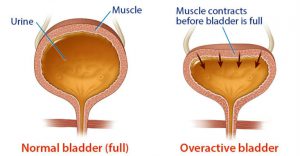 Overactive bladder
Overactive bladderIt is known that this drug can cause an overactive bladder causing frequent urination which sometimes is uncontrollable by the sufferer. (BMC Geriatrics, June 10, 2013). Unnecessary doubling of his dose of Lasix will only exacerbate the problem. There seems to be no consideration for the patient when these drugs are dished out willy nilly. Why should this man have to put up with these side effects?
No attention has been given to this patient’s occupation. Operating heavy machinery whilst suffering the side effects of dizziness or vertigo is an accident waiting to happen. This just confirms that this doctor failed in his duty to make sure his patient had the best possible medication for his particular lifestyle. This is a dereliction of duty in my mind, apart from the obvious misery it is causing the patient and his wife.
whilst suffering the side effects of dizziness or vertigo is an accident waiting to happen. This just confirms that this doctor failed in his duty to make sure his patient had the best possible medication for his particular lifestyle. This is a dereliction of duty in my mind, apart from the obvious misery it is causing the patient and his wife.
“As part of the medications I take for high blood pressure, I take Lasix two times per day, 40 mg each. I am concerned as I just read that Lasix can potentially cause kidney damage or gout when taken over a period of time. I am very concerned that I have never been told about these serious side effects from my doctor. Are they true?”
Again, here is another example of medics not doing right by his patient. The most common side effects should be made clear so that the patient can come back to the doctor if he suffers them. How is the patient expected to know that something he has is due to the drug he is taking. Many people will just think they have the flu or their back aches because of the gardening etc.. Patients must be kept informed. The information must be given by the doctor. This patient actually looked up for himself what the side effects may be for this drug. So now he is turning to other means to find out for himself, which means he has lost faith in his doctor.
 “My mother had swelling in her ankles, she only weighed 74 lbs. Her Dr. prescribed her lasix 40 mg.
She took one time day. We had home health nursing too. Mom was feeling weaker loss of appetite. They couldn’t figure out what’s wrong. About week Mom says let’s go to Hosp. we waiting for results, her body had no sodium.
Dr. didn’t prescribe potassium with her lasix…we were in Hosp 2 wks . We were home 2wks. She never recovered from that. I lost her…do u believe Dr. is responsible…I do.”
“My mother had swelling in her ankles, she only weighed 74 lbs. Her Dr. prescribed her lasix 40 mg.
She took one time day. We had home health nursing too. Mom was feeling weaker loss of appetite. They couldn’t figure out what’s wrong. About week Mom says let’s go to Hosp. we waiting for results, her body had no sodium.
Dr. didn’t prescribe potassium with her lasix…we were in Hosp 2 wks . We were home 2wks. She never recovered from that. I lost her…do u believe Dr. is responsible…I do.”

As for the 2nd patient, words fail me. What a terrible mistake not to make sure all electrolytes are replete, especially in an older patient. This poor lady met her demise probably because she lacked the electrolytes for her body to survive. This is such a real danger with diuretics.
Did you know that in the UK, medical school has just 1 day out of 6 years spent on learning about nutrition and these lessons are not compulsory so many don’t attend. There is no requirement for knowledge of nutrition to become an MD. I suspect many patients know more about nutrition than their doctors!
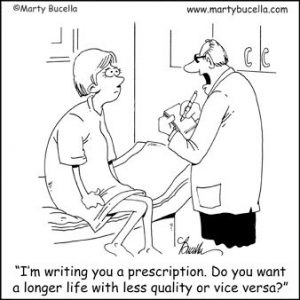 Are doctors in control?
Are doctors in control?There seems to be a serious and life threatening problem with medics just not knowing their stuff when it comes to prescribing these serious drugs. Why don’t medics know how minerals and other nutrients work. Or is there something else going on? Are doctors losing control to a larger machine?
One of the most serious side effects of this drug and other diuretics (and many other drugs) is kidney damage. After all, drugs must be processed through the kidneys so this delicate system has to cope with alien chemicals which are changing the way the kidneys work.
European Heart Journal. Cardiovascular Pharmacotherapy, June 19, 2017 reports that kidney damage is a possible adverse reaction to this drug. Although this side effect is listed in the leaflet that comes with the drug, it seems to be unknown to those medics that prescribe it. Those patients that suffer the consequence of regularly taking this drug will no doubt consider themselves just unlucky to have succumbed to kidney disease. This despite the likely cause to be the furosemide they regularly take.

“I had gout attacks only when I was taking Lasix. My uric acid levels were 11. I have not had any attacks since discontinuing the Lasix.”
Gout is another possible side effect of furosemide which is brought about by elevated levels of uric acid. Arthritis & Rheumatology, Dec. 29, 2011 onlinelibrary.wiley.com/doi/10.1002/art.33315/abstract)).
“I take prescribed 20 mg Lasix twice a day. One doctor says to take potassium with it, but another doctor says no. I don’t know what to do.”
It is known that furosemide depletes the body of minerals such as magnesium (Mg) and potassium (K). A common practice is to test the patient for deficiencies in these important minerals. Problem is, the test results are often false positives for both these minerals with Mg deficiency being particularly mis-diagnosed, when a reading, shown as normal, is hiding the fact that the patient is seriously deficient.

The total magnesium serum test is so inaccurate and antequated that it could be the reason why most doctors think a Mg deficiency is unusual. As for K, your doctor should prescribe Lasix-K or offer a K supplement. One of these doctors is wrong and the poor patient doesn’t know what to do!
Electrolytes Mg and K are essential for muscle function and that includes the heart muscle. Muscle cramps are common when Mg is depleted, along with arrythmias which can be life-threatening if not addressed properly. You can’t overdose on Mg, the body won’t hold onto it. It is good practice to always make sure you are replete in this king of minerals. Without it you WILL become sick with many different problems.
“My wife (54 years old) started furosemide 20 mg twice a day for fluid retention. It has helped with that, but has caused hearing loss in both ears. She has been told to stop for two weeks and see her doctor for blood work afterwards.”
 The possibility of hearing loss, which can be irreversible, is on the list of side effects for this drug. It should be stressed by all doctors, the serious side effects this drug can cause including kidney damage and irreversible hearing loss and many more. I’m sure if this patient had been told about the side effects, she would have requested a different medication. But she hasn’t been given the option. Because of this lack of information, she could be permanently hearing impaired!
The possibility of hearing loss, which can be irreversible, is on the list of side effects for this drug. It should be stressed by all doctors, the serious side effects this drug can cause including kidney damage and irreversible hearing loss and many more. I’m sure if this patient had been told about the side effects, she would have requested a different medication. But she hasn’t been given the option. Because of this lack of information, she could be permanently hearing impaired!
“I have a very good friend who suffers from serious heart problems. He had a pacemaker implanted many years ago. That was replaced with a defibrillator pacemaker. He has been taking many medications for his heart problems, including furosemide (Lasix). He was diagnosed with diabetes about three years ago.
A few months ago, he was taken to the ER when he became very short of breath. They ran many tests and one doctor switched him from Lasix to torsemide (Demadex). Ever since this change, his blood sugar has been completely normal. Is diabetes one of furosemide side effects?”
The body’s lack of ability to deal with carbohydrates has been associated with furosemide (Lasix). This can lead to elevated blood sugar levels putting the patient at risk for diabetes. If this patient acquired his diabetes after being on this drug, there is a possibility the furosemide was a contributory factor.
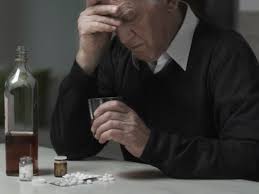 Husband changed into a ‘Zombie’
Husband changed into a ‘Zombie’“My husband took furosemide for many years. We now know from the cardiologist who is caring for my husband that he was taking too many drugs that were not beneficial for him including furosemide. He was like a zombie–just wanted to sit and do nothing.
After this cardiologist took my husband off this drug, plus others, plus prescribing  something else instead and reducing the amounts of other drugs, my husband miraculously became alive again. He is now 86 years old and has survived two life-threatening surgeries. He is now very active and building things like he used to that he loved to do. He does many tasks and does not want to sleep all day, eats well and does so many other things…
something else instead and reducing the amounts of other drugs, my husband miraculously became alive again. He is now 86 years old and has survived two life-threatening surgeries. He is now very active and building things like he used to that he loved to do. He does many tasks and does not want to sleep all day, eats well and does so many other things…
and
“I have taken furosemide 40mg daily for the last 5 years and to me I seriously think that it is useless but I am told by the doctors not to stop taking this which was increased to 80mg daily after my visit to hospital for a knee op since which I have suffered with very swollen ankles and the increase in furosemide dose which I know is not helping me one bit. My doctor tells me that I cannot STOP taking this medication but I really intend to stop for a week as I honestly think that they are not relieving my swelling but only making me lifeless and immobile I am 82 years old”
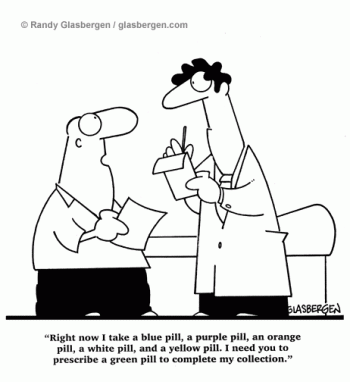 Prime example of over prescribing
Prime example of over prescribingThe first patient here is a prime example of too many drugs being taken, many of which were obviously not necessary and causing great harm. Thank goodness this patient found a cardiologist who recognised the problem. Why were his previous medics not checking his prescription drugs regularly. Can it be something to do with money?
The second patient knows the drug is doing no good, but will not stop it because the doctor insists it be taken for life and doubling the dose to boot! She is obviously declining in health as she states she is ‘lifeless and immobile’, what a crime! There is another way, but this doctor is not going to suggest anything other than a drug and more of the same.
As well as furosemide, many drugs can clash with each other, possibly causing serious problems. Doctors do not seem to be au fait with which drugs can be incompatible with others. It should not be your job to look out for conflicts between your prescribed drugs but it may be wise to do so and check with your pharmacist who will likely know more about this subject than your medic.
 From the horse’s mouth!
From the horse’s mouth!“Before I retired as a pharmacist, the two generic drugs that I received the most complaints about were generic Lasix and generic Ritalin.” Mark
This is a very telling sentence. There is no reason why this professional should not be telling things as they are. He says the ‘two generic drugs that he received the MOST complaints about’, indicating that there are many other drugs causing many problems for many patients. Patients are complaining to their pharmacist, are they also complaining to their doctor. If not, why not?
Doctors are often held in the highest esteem and many patients are loath to complain to them for fear of disapproval or reproach. After all, doctor knows best, but does he? The fact that your doctor is looking after your health, or supposed to be, can be a little intimidating.

But remember, this is your body and your health we’re talking about, not his. Don’t be frightened to ask questions and give your opinions. If you are not happy, change your doctor to a naturopath who is also an MD. These doctors of the future will look at the whole body. You will likely be prescribed natural medications before drugs. Drugs will only be prescribed if there are no alternatives.
Here are some more comments from desperate patients who really are in turmoil as how to proceed with their condition. It would appear that most are not over enamoured with how they have been treated by the medical profession.
“Been on furosemide 40 mg 3 times about 6 weeks and because it transformed me into a zombie, my MD dropped the dose to 20 mg 3 times a week. Within another month my legs were so weak, I couldn’t walk at all. Waiting to hear from my cardiologist for advice.”
“I have been on Lasix 40MG for approximately six weeks for edema, shortness of breath, and high blood pressure. Gradually, I have encountered cramps in my feet and left hand, mostly at night. The worst effect is very harsh left kidney pain where I’m unable to sleep at night. It starts to subside about 4:30 AM. I used to take Triamterene/HCTZ Capsules 37.5-25MG with little or no side effects. I almost went to the emergency room last night due to the intense kidney pain. I’m calling my cardiac MD this morning for advice. At the very least I’m stopping the Lasix.”
 “I have these cramps so bad and gout, now I see it came from the Lasix as a side effect and my doctor just upped my dosage to 40 from 20. I am swollen in the legs and feet and I think my water pill isn’t working. I don’t think I’ll up the dosage but stop generic brand and opt for another brand of water pill. These doctors are not telling us everything. The gout is not hereditary, it came from the water pill and so did the ringing in my ears and blurry vision.”
“I have these cramps so bad and gout, now I see it came from the Lasix as a side effect and my doctor just upped my dosage to 40 from 20. I am swollen in the legs and feet and I think my water pill isn’t working. I don’t think I’ll up the dosage but stop generic brand and opt for another brand of water pill. These doctors are not telling us everything. The gout is not hereditary, it came from the water pill and so did the ringing in my ears and blurry vision.”
“My doctor prescribed furosemide to reduce swelling, just the opposite effect happened. At first I thought it was just not working yet. Soon I noticed that my feet and legs would swell so much that they hurt when touched even the slightest. I stopped for a few days and things would be better, so I thought I would try it again and yes I would start swelling all over again. Sometimes I wonder if our doctors even research any of the meds before they give them to you.”
“My husband is 48 years old and has numerous health issues. He has gout, cirrhosis of the liver, diabetes, heart issues (5 stents in place). He has been on lasix for about a year now. He takes 16 different medications right now. After reading this blog I’m concerned because he is on lasix and omeprozale. His legs are constantly swollen and now his stomach is swollen with a bad pain on the left side under the rib cage. Anyone have any suggestions on what to do?”

I can’t tell you how much my heart goes out to these poor people who have been, in my opinion, mistreated by the medical profession. Instead of looking at possible natural treatments, the medical profession are burdening already sick bodies with pharmeceutical drugs. Believe me, there is another way. Drugs should be a last resort. We weren’t born with drugs in our bodies but we’re certainly dying with them. It is now reported that the 3rd leading cause of death after heart disease and cancer is prescription drugs!
I hope you’ve found this 4 part article informative giving you guidance to make an informed decision as to what drugs you will allow to be put into your body. Diuretics should not be one of them unless there is a medical emergency as I mentioned before.
 For those of us who have a little oedema from an ongoing condition, or slightly high blood pressure which is not life threatening, try the tips from Part 3. You will be surprised how much you can do for your own health. A lot of it is common sense. You know when you’re mistreating your body. Take action and be good to yourself. Make sure you are one of those who will live a long and healthy life, with all your faculties and a body that will keep you active right into old age. Here’s to you reaching your 100s!
For those of us who have a little oedema from an ongoing condition, or slightly high blood pressure which is not life threatening, try the tips from Part 3. You will be surprised how much you can do for your own health. A lot of it is common sense. You know when you’re mistreating your body. Take action and be good to yourself. Make sure you are one of those who will live a long and healthy life, with all your faculties and a body that will keep you active right into old age. Here’s to you reaching your 100s!
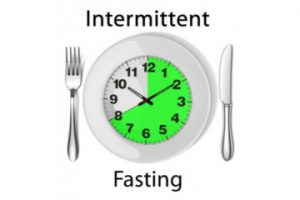 How to treat oedema
How to treat oedemaIn Part 3 of Drugs! Are you on a diuretic, I will summarize what you can do about your oedema instead of taking these drugs. It’s a win, win situation because what you read here will also help with other conditions such as diabetes and obesity. If you take these tips on board, you will be on your way to a healthier, happier and slimmer you. Read on and enjoy your new way of living! By the way, you can read Part 1 here and Part 2 and Part 4.
This method of eating is really effective, healthy and easy and can kick that oedema to the kerb in no time flat and help lose weight to boot. If you have type 2 diabetes you will definitely notice a difference. Some of you may think it sounds difficult, but we have tried this way of eating and we’re hooked, it’s really easy. It’s called ‘intermittent fasting’. All you do is make sure you only eat during a certain time of the day. For example you can make sure you eat reasonably early in the evening and then don’t eat anything after a certain time, which will include all night and a part of the next morning.
 A new way of eating
A new way of eatingDr Ken Berry says “Intermittent Fasting is the Newest Diet, that is actually thousands of years old! It is easy, free and fool-proof. You already fast when you are asleep, all you have to do in slowly increase your Fasting Window, and decrease your Feeding Window, and you will start to see results. It is the Cheapest Diet Ever!”
There are many ways to do intermittent fasting and I will leave it up to you to research for yourself what suits you best. But for me and hubbie, we simply stop eating at 8pm. Then we don’t eat again until late lunchtime, that’s it! So our window of eating is between 1:30pm – 8pm, just 6.5 hours. This means we have a period of around 17.5 hours when we don’t eat. We drink plenty of water (with Mg Chloride in), tea and the odd coffee. It sounds hard, but we found it really easy and it has been proven to reduce oedema and help control conditions such as diabetes as there is no insulin spiking during the fasting hours. Although we were not overweight to start with, we have both lost weight without trying and I never get any bloating or oedema in the ankles and feet when travelling, like I used to.
 Start Slow
Start SlowYou can start slowly, say stop eating at 9pm and don’t start again until say 10am, that’s a fast of 13 hours, it’s not difficult honestly and you will reduce your oedema and you will lose weight. Increase your fasting period week by week until you have a major part of the day without food. You don’t have to restrict what you eat as long as it’s not junk food, bad fats, diet sodas etc., you know what’s good for you and what isn’t I’m sure. If you get hungry have a cup of tea or coffee or drink some water.
Once you get into the swing of it, you can adjust the fasting to suit your lifestyle. If you have a dinner date for instance, enjoy it and carry on with your fasting regime the next day. We generally eat this way on a daily basis, but we won’t go without. When we have a wedding to go to or a night out on the town, we forget the fast and enjoy ourselves. But we always return to it the next day. You will find that if you do have a ‘blowout’, fasting the next day is easy to do and quite often food is not top of your list!
 Digestion
DigestionYou will find your digestion will improve and when you do have a night out and eat stuff you usually don’t, you may find your stomach will complain and old digestive problems may return temporarily, such as heartburn and bloating. This is a good time to realize which foods do actually upset you, so you can learn from the experience.
This way of eating has actually naturally reduced my bread intake and if we go out to eat and I have a lot of bread, my stomach lets me know it doesn’t like it. This has taught me to lay off the wheat a little and reduce it as much as possible. My digestion is perfect now and I had so many problems with it a few years back. Mind you, I put a lot of that down to a Mg deficiency which I don’t have now.
 This way of eating teaches you a lot about your own body and how different foods have different effects on you. I have come to love good foods like brocolli, nuts and berries. I now don’t want to eat bread and cakes but I do eat chocolate every evening, it is the last food I have at 8pm. I try and eat the darker variety but occassionally have a few squares of milk chocolate. I also indulge in a small glass of wine whilst I’m preparing dinner.
This way of eating teaches you a lot about your own body and how different foods have different effects on you. I have come to love good foods like brocolli, nuts and berries. I now don’t want to eat bread and cakes but I do eat chocolate every evening, it is the last food I have at 8pm. I try and eat the darker variety but occassionally have a few squares of milk chocolate. I also indulge in a small glass of wine whilst I’m preparing dinner.
When you do eat, make sure its the good stuff. Don’t eat junk and don’t drink diet coke or other aspartame laced drinks. Avoid aspartame, it is definitely bad for you and it WILL NOT help you lose weight, quite the opposite. In fact, did you know that Coca Cola, Pepsi and, Dr Pepper are being sued. The complainants say the word ‘diet’ on the cans and the advertising is misleading and has led to them putting on weight. “Marketing these brands as “diet” is false, misleading and unlawful” the suits claim.
Cook your own foods from scratch if you can. Grow your own foods if you have the space, it is very rewarding eating your own produce. With just a little space you can grow a few smaller foods such as garlic. Herbs are always nice to have in your garden and they smell great too!
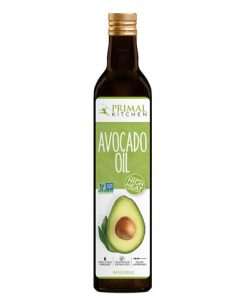
It’s a myth that cholesterol will kill you. But it will definitely kill you if don’t have enough! Just eat healthy fats such as avocado, organic coconut oil and grass fed butter. Those people with low cholesterol levels are more likely to suffer with dementias, brain fog and other brain problems. Around 25% of the body’s cholesterol is in the brain, it is vital for the body and the myelin sheaths which insulate the nerves. Independent research reveals the ‘cholesterol myth’ and it’s worth looking at this research for yourself.
Forget your cholesterol, just make sure what you eat is good quality unprocessed foods and include those often vilified eggs, they’re great but make sure they are at least free range if not organic. Eat raw nuts especially almonds, pistachios, walnuts and cashews. Don’t eat too much fruit but avocados, berries, apples and grapefruit are especially good for you.
 The super veggie is broccoli from the cruciferous family. Cruciferous veggies are the best! Eat grass fed meat if possible and definitely avoid meat from intensively farmed animals and farmed fish. I know the best foods are the dearest but try and eat as much fresh organic food as you can afford and make an effort to do your own cooking. That way you will know exactly what goes into your meals.
The super veggie is broccoli from the cruciferous family. Cruciferous veggies are the best! Eat grass fed meat if possible and definitely avoid meat from intensively farmed animals and farmed fish. I know the best foods are the dearest but try and eat as much fresh organic food as you can afford and make an effort to do your own cooking. That way you will know exactly what goes into your meals.
An imblance of Mg and Ca is a sign of aging and if you want to keep supple and avoid heart disease, depression, insomnia, arthritis, rheumatics and general aching and stiffness as you age, you best take notice of Mg. This wonder mineral is absolutely vital for all animals and plants alike. If you are continually depleted, you WILL slowly get sick. A continual Mg deficiency will shorten your lifespan.
 To avoid an imbalance, make sure your intake of Mg’s sister mineral Ca is not excessive. Don’t take Ca antacids such as ‘Tums’. These antacids allow you to consume 3000mg of Ca each day. No way will you be able to balance that with 3000mg of Mg, and that doesn’t include your normal daily consumption of Ca which is fortified in many foods by the food manufacturers. Excess Ca is dangerous!
To avoid an imbalance, make sure your intake of Mg’s sister mineral Ca is not excessive. Don’t take Ca antacids such as ‘Tums’. These antacids allow you to consume 3000mg of Ca each day. No way will you be able to balance that with 3000mg of Mg, and that doesn’t include your normal daily consumption of Ca which is fortified in many foods by the food manufacturers. Excess Ca is dangerous!
 We all get old
We all get oldYes, we all get old, but better to be sound of mind and body and live our lives to the fullest into our 80s and 90s. Perhaps you may even get to 100 like the lovely lady in this picture, she looks great!
This site is all about Mg with occassional diversion to other natural health subjects which I’m passionate about. I started this webpage because I found out about this amazing mineral and it cured me of all my ills and conditions within just a few weeks. I am now a fit and healthy woman in her ‘golden’ years. When I look around me and see people much younger than myself, struggling to walk and obviously in discomfort, I am saddened.
I just want everyone to learn about their own bodies and how vitamins, minerals and nutrients, gained from good food and a few supplements, are all that’s needed to keep our bodies in tiptop condition. Some nutrients, however, are a little more important to your health than others and Mg is one of them. This added to regular exercise is all you need.
Drugs will only slowly degrade your body, deplete your Mg and other nutrients until you succumb. It will be put down to genetics and/or old age. Your bones will suffer and Ca will be allowed to run riot in your soft tissue causing calcifications where it settles. You will become stiff, achey, depressed and will slowly lose your quality of life. Just have a think for a moment and wonder… How many pharmaceutical drugs do you know that actually cure a condition?
you succumb. It will be put down to genetics and/or old age. Your bones will suffer and Ca will be allowed to run riot in your soft tissue causing calcifications where it settles. You will become stiff, achey, depressed and will slowly lose your quality of life. Just have a think for a moment and wonder… How many pharmaceutical drugs do you know that actually cure a condition?
Get off diuretics if you are able to and try the above natural alternatives. Get your doctor on your side, but please make sure your medic is on board about natural alternatives. Naturopathic doctors who are also MDs are more au fait and may be the way forward.
 Questions?
Questions?Because there are so many questions about diuretics, I will do a 4th post on diuretics, with actual questions from patients and their loved ones. You may have a similar question about this class of drugs that could be answered in this last post.
 This is Part 2 of Drugs! Are you on diuretics? Part 1 is here and here is Part 3 and Part 4. Following on from all the reasons why you should not take a diuretic, I want to add a caveat about the administration of diuretics with regard to a type of blood pressure known as malignant hypertension.
This is Part 2 of Drugs! Are you on diuretics? Part 1 is here and here is Part 3 and Part 4. Following on from all the reasons why you should not take a diuretic, I want to add a caveat about the administration of diuretics with regard to a type of blood pressure known as malignant hypertension.
Malignant hypertension is a life threatening condition where blood pressure spikes really high and very quickly and can be an extreme medical emergency. Severe symptoms of intense headache, cognitive disruption, visual disturbances, walking problems and speech difficulties are some of the complication of this condition. Emergency use of diuretics for the short term is not challenged here. Note though, that this is a very rare type of hypertension. Most sufferers of high blood pressure are not this severe and many don’t even know they even have high blood pressure.
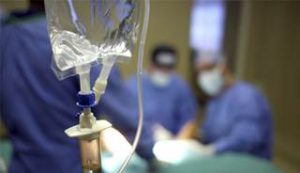
So lets go through a few scenarios of when diuretics are given. I list below a few of the most common conditions for which these drugs are prescribed.
Most people don’t feel sick with BP so there’s not usually a general medical emergency associated with it. As we age, BP is often raised a little by the body in response to stiffness and inflexibility and helps to keep the blood flow strong, sounds good to me!
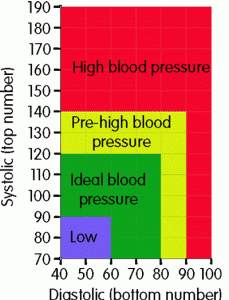 120/80 is just an average
120/80 is just an averageIf your BP is slightly over or below the norm, or you have exhibited a higher reading than you do normally at home, you may erroneously be prescribed a diuretic. Diuretics are the number one hypertensive drug to be prescribed. It inevitably won’t work and so it leads nicely onto the patient being prescribed a 2nd drug for hypertension to go with the diuretic. Now you’re on 2 drugs. This is a common scenario.
Anyway, who says everyone’s BP has to be 120/80. A little give or take in a reading is normal, isn’t it? Our bodies are not all exactly the same. As for treatment of this common condition, there is nothing better than a good supplement of Magnesium (Mg). As we age our Mg levels will deplete and at the same time our Calcium (Ca) levels will increase. If Ca levels are much higher than Mg then the body is Mg deficient by default. Excess Ca can lead to devastating problems including coronary calcium deposits.
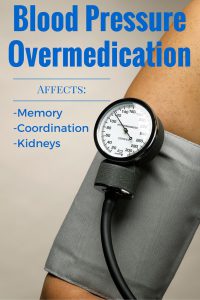
A common side effect with BP drugs is fainting, dizziness or falling when the drug lowers the BP too much. This is a real problem for the elderly who only need to fall once to break a hip. Mg will not interfere to the extent of dropping your BP below optimum levels for your body.
Dehydration is another side effect that is more serious than most realize, depleting precious minerals such as Mg and Potassium (K) and upsetting your electrolytes. This can be dangerous for the heart with arrhythmias being a common side effect. Taken optimally, Mg will hydrate the body and alleviate so many symptoms, you wouldn’t believe. Many of which you are probably suffering from right now!
How can these drugs help when it is known that they can actually cause kidney disease? As I said in Part 1 of this article, the kidneys are very delicate and their filtration processes very complex and balanced. Any drug that changes that balance and upsets the process will compromise the kidneys. Without healthy kidneys your life will be problematic and studies have shown that diuretics are not beneficial to kidney function and can in fact shorten the life of a sufferer. – “The use of diuretics in critically ill patients with acute renal failure was associated with an increased risk of death and nonrecovery of renal function.” (from part 1).
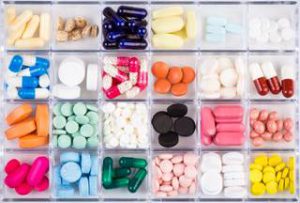 Kidneys have to deal with all drugs
Kidneys have to deal with all drugsRemember, all drugs end up getting processed through the kidneys and these toxic concoctions should only be used as a last resort, when all else fails. So what can we do to help our kidneys function properly without drugs?
Lifestyle changes have to be made to keep yourself fit and healthy. This is difficult I know because when you’re already under the weather, it takes a strong mentality to pick yourself up and start making those changes that you know you need to do.
But if you don’t want to end up having a miserable unhealthy life, you have to change your paradigms. Make sure you don’t end up with kidney disease. If you already have it, then taking a diuretic will not help. Let nature help you and give yourself the nutrients needed to mend your body.
Again, diuretics will put a strain on the liver as well as the kidneys. Why would we want to exacerbate an already damaged organ? When the abdomen swells because of liver disease, there are many things you can do to help your liver recover naturally. You MUST be aware of your lifestyle. Your eating habits, your drinking habits, drugs, smoking, lack of exercise. Get these under control and you will be on the way to reducing your symptoms.
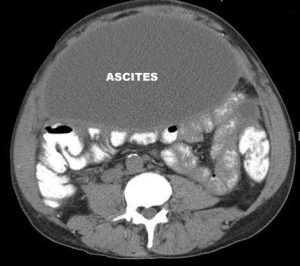
“Ascites is the accumulation of protein-containing (ascitic) fluid within the abdomen. Many disorders can cause ascites, but the most common is high blood pressure in the veins that bring blood to the liver (portal hypertension), which is usually due to cirrhosis.”
A swollen belly is worrisome and distressing and you definitely want to reduce it. Be positive and use it as a barometer of how your new lifestyle is improving your health. This symptom is seldom painful and when you see your stomach slowly diminishing, you will be so proud of the changes you have made to your life and you won’t want to go back.
If your heart is failing it will not be helped by taking a diuretic. Improve heart function naturally. When your legs puff up from right sided heart failure, taking a diuretic is not going to strengthen it. However, with left sided heart failure, fluid may accumulate in the lungs (pulmonary oedema). Breathing can become difficult causing an emergency situation. A diuretic in this case could not be contested, often an IV diuretic is administered, but it will only be a temporary fix.

It is only YOU who can strengthen your heart with a good diet of whole foods and plenty of vegetables and some specific fruits. Avoid junk food like the plague along with junk fats and diet sodas. Start an exercise regime, gently does it and work up slowly. You’ll be surprised how much you will improve when you regularly exercise.
Magnesium is an essential key to a healthy heart. It will help avoid heart attacks and lower blood pressure. It will stop painful muscle cramps and relieve digestive problems. It will ensure restful and beneficial sleep and alleviate insomnia and you are bound not to be getting enough of this amazing mineral. Most importantly, it will keep Ca dissolved in the blood which will help disable calcification in the soft tissue.
Your heart has the highest requirement for magnesium than any other organ in the body with the left ventrical needing the most. “Magnesium shines brightest in cardiovascular health. It alone can fulfill the role of many common cardiac medications: magnesium inhibits blood clots (like aspirin), thins the blood (like Coumadin), blocks calcium uptake (like calcium channel-blocking drugs such as Procardia) and relaxes blood vessels (like ACE inhibitors such as Vasotec)” According to the Western A Price Foundation
body with the left ventrical needing the most. “Magnesium shines brightest in cardiovascular health. It alone can fulfill the role of many common cardiac medications: magnesium inhibits blood clots (like aspirin), thins the blood (like Coumadin), blocks calcium uptake (like calcium channel-blocking drugs such as Procardia) and relaxes blood vessels (like ACE inhibitors such as Vasotec)” According to the Western A Price Foundation
This is caused when the venous valves are inefficient at allowing blood back to the heart. It causes swelling in the legs and ankles and can cause pain whilst walking. The skin often is brown usually near the ankles. There is a tendency for varicose veins and leg ulcers.
 Diuretics? Why not try walking!
Diuretics? Why not try walking!Diuretics will likely be prescribed to take down the swelling. A better and more natural way would be to do more walking. Do you have a dog? If not, how about giving a rescue dog a home and start your walking regime with him. Many patients who have venous insufficiency are overweight and a healthy diet and exercise can do nothing but improve these symptoms. A diuretic will just mask the condition but will not cure it.
Walk as much as possible. Wear supportive tights or socks. Raise the foot of the bed a little. Put your feet up when resting but don’t stay there too long! Get up regularly and walk about. Set your alarm clock or buy one of those ‘fitbits’ to make sure you move every hour and keep a check on your movements. Walk around the house or around the block. Take the dog out, anything to keep you moving.
Again, diet is paramount. Plenty of veggies and for fruit eat berries such as blueberries and strawberries. Avocado is a super fruit although many don’t like it including me. Even so I only use avocado oil for cooking it has a very high smoke point so is not damaged by heat. It also has a very delicate flavour that does not taint the food.

We all get a little puffy sometimes, perhaps from sitting too long or being too hot or during a long flight. There are healthier ways to deal with it than stressing your kidney function and depleting your nutrients and electrolytes with a diuretic.
 In Part 3
In Part 3In Part 3 we will summarize the important bits we’ve covered and also go through how you can reduce any oedema with a particular way of eating which has a great side effect of weightloss!
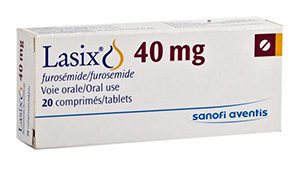
This class of drugs is often the first medication you will be prescribed if you are deemed to have high blood pressure. I will explain why diuretics should not be prescribed to the majority of the population and especially not to the elderly. There are certain extenuating circumstances when diuretics may be of value but these will be rare. Other examples of when this drug will be prescribed is for kidney failure, liver disease, congestive heart failure and all types of oedema. See Part 2 and Part 3 and Part 4 of this article.
These drugs increase your output of urine but at what cost? When the kidney is working without drugs it does its job with a sophisticated filtration system through a special cluster of high pressure capillaries known as a glomerulus.
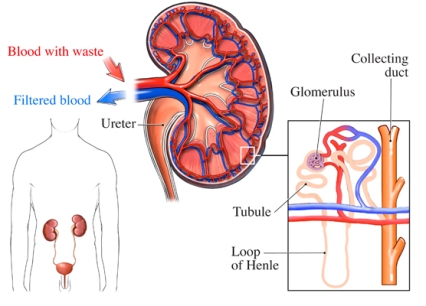 How your kidneys function
How your kidneys functionThe function of kidney filtration starts with blood passing through the glomerulus. The high pressure forces water and other dissolved substances out of these special capillaries and into a capsule which surrounds the glomerulus. This is known as Bowman’s capsule. This capsule now contains all water, salt and dissolved substances, but the water and dissolved substances are then ‘reclaimed’ or reabsorbed by passing through a second filtration system known as the renal tubule system. This insures that vital nutrients are not lost during the filtration process.
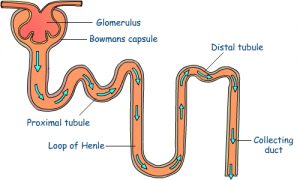
This whole filtering system is known as a nephron, hence the name nephrology, the branch of medicine to do with the physiology and diseases of the kidneys. Each kidney has around a million of these nephrons.
The reclaimed nutrients include much of the salt and water, glucose, amino acids, lactate, magnesium, phosphate, calcium bicarbonate and uric acid.
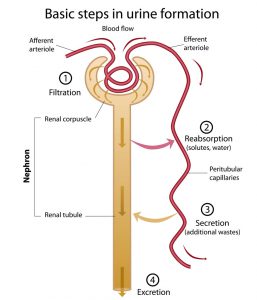 The result of filtration = urine
The result of filtration = urineAfter the process of filtration and reabsorption, the resulting urine is expelled from the body. It contains around 95% water, urea and other substances including chloride, sodium, potassium, creatinine and metabolic waste and toxins all in varying degrees, depending on diet and health.
Now what diuretics do is to ambush the second reclamation filtering system so that much more of the initial filtrate from the glomerulus goes to the bladder. Thus this filtrate still has vital nutrients within it. This means more water and more minerals, such as magnesium, potassium and sodium, are sent to the bladder instead of being reclaimed. Reclamation is a vital process which avoids depletion of necessary nutrients.
There are different kinds of diuretics which work in slightly different ways. They each interfer in different areas of the kidney filtration system. Loop diuretics for instance, undermine reabsorption at the ascending loop (see the diagrams) while thiazide diuretics undermine the system at the distal convoluted tubule.
Thiazide diuretics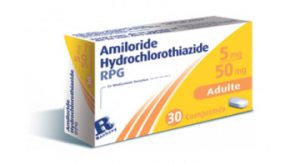
Loop diuretics
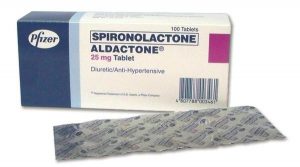
Potassium sparing diuretics
Yes, I know it’s a bit heavy going but if you understand a little of what’s going on, it will give you the reasons why these drugs are not good for you and allow you to make an informed decision as to whether you want to take them or not.
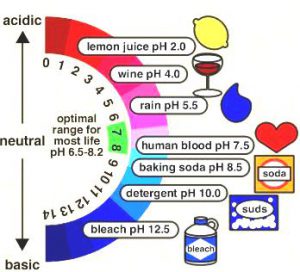 Kidneys and hormones
Kidneys and hormonesRemember that kidney function is extremely delicate and complex. It is fine tuned to do a delicate balancing act. As well as producing its own hormones, the kidneys are influenced by other hormones produced by glands such as the adrenals and the pituitary. Your kidneys have the important and complicated task of controlling your pH system to maintain correct acid-base balance.
Those who are prescribed diuretics probably think they are improving kidney function. Nothing is further from the truth. Your kidneys will be undermined by these drugs. They interfer with their proper function and do nothing to help the original condition.

In fact now you have two problems. One is the condition you started with and now you have another abnormality to the one you already have because of pharmacological interference. All a diuretic does is feign improvement. It does not cure anything. It won’t fix your problem but it will camouflage the original condition to the extent that when your condition worsens, the drug will not be blamed. Your body will be blamed for not responding well to the medication. So you now have two diseases, the naturally occuring one you started with and a second which is drug induced.
Yes, your swelling may go down, but any improvement that may appear to come from taking this drug is false. It does not mean you’re getting better. You, as well as your doctor are being tricked by a dishonest medical manoeuvre. Nothing will be resolved by taking a diuretic but something will increase…and that’s the profits of the pharmaceutical industries that produce this drug.
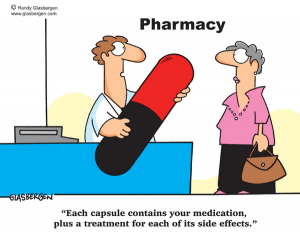 Cavalier tinkering
Cavalier tinkeringTaking a diuretic will just exacerbate the original problem. Cavalierly tinkering with this delicate, finely tuned and amazingly complex filtration system will only make matters worse and complicate your condition by further compromising the already upset biological system. What it will do is put you on the road to being a permanent visitor to the doctor’s office or worse to the hospital.
There have been a number of studies done about diuretics. I will quote a passage from a study from the JAMA (Journal of American Medical Assn) titled: Diuretics, Mortality and Nonrecovery of Renal Function in Acute Renal Failure
“Conclusions The use of diuretics in critically ill patients with acute renal failure was associated with an increased risk of death and nonrecovery of renal function. Although observational data prohibit causal inference, it is unlikely that diuretics afford any material benefit in this clinical setting. In the absence of compelling contradictory data from a randomized, blinded clinical trial, the widespread use of diuretics in critically ill patients with acute renal failure should be discouraged”.

I really would like to know how many patients actually get to a stage of renal failure. Could it be anything to do with pharmaceutical drugs taken over a period of time. Could these drugs compromise kidney function to the extent that kidney failure is possible, if not inevitable, as the patient ages?
It is incredulous to me that this class of drugs known as diuretics, has escaped much of the criticism that some of our prescription drugs rightly receive. If you can understand what it actually does to the body, you will wonder why it is so readily prescribed, especially when there are other ways of removing excess water, other ways that are safe and have no side effects.
Getting rid of excess water by using a drug is not a good idea and will likely compromise your kidney function and put undue stress on your kidneys. All we know is that if we take a diuretic, we will want to use the loo more because the drugs are getting rid of the excess water in our bodies, but at what cost?
 Nobody seems to ask the question: Why do I get puffy ankles and feet. Why is it I am bloated and can’t get into my clothes. Answer this question and you’re half way to understanding what you need to do to alleviate the condition, without drugs.
Nobody seems to ask the question: Why do I get puffy ankles and feet. Why is it I am bloated and can’t get into my clothes. Answer this question and you’re half way to understanding what you need to do to alleviate the condition, without drugs.
In Part 2 of this post I will try and answer some of these questions.